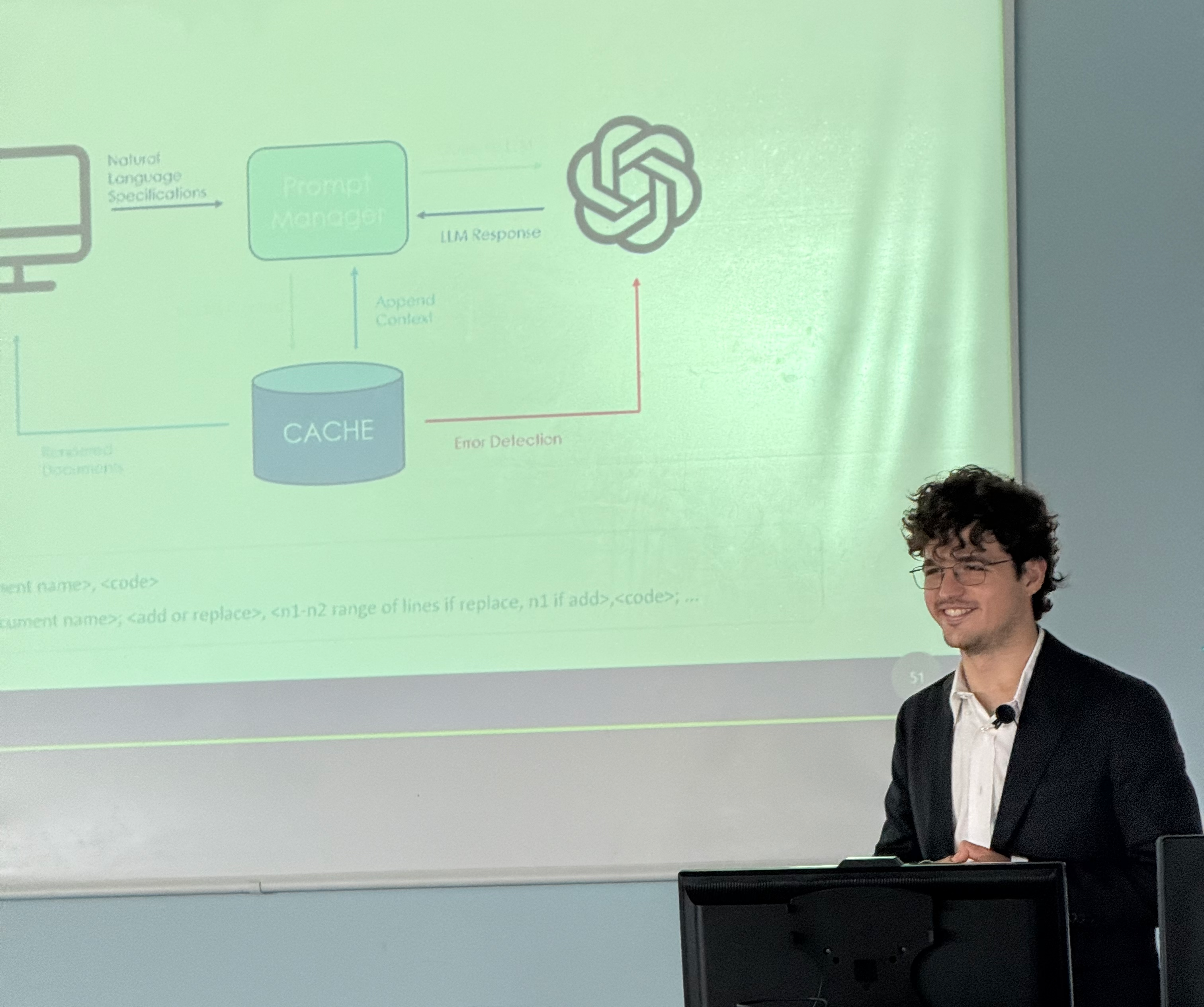Ph.D. Defense of Tommaso Calò
On Monday, July 14, 2025, at 14:00, Tommaso Calò defended his Ph.D. dissertation titled "From Human Representations to AI Realization: Algorithms and Tools for Creating and Refining Interactive Systems".
The defence was evaluated by the international committee composed of Sven Mayer (TU Dortmund University, Germany), Maristella Matera (Politecnico di Milano, Italy), Niels van Berkel (Aalborg University, Denmark), and Davide Spano (University of Cagliari, Italy), and coordinated by Luca Ardito (Politecnico di Torino, Italy).
Tommaso discussed his research and was awarded his Ph.D. cum laude. Congratulations, Tommaso!

Abstract
This dissertation investigates novel methods and tools that employ AI to address the gaps between domain expertise and technical implementation, allowing both domain professionals and end users to effectively create and customize interactive systems.
Domain professionals face distinct obstacles based on their expertise areas. Web designers, for instance, struggle with the translation gap between visual concepts and functional implementation, leading to compromised designs, extended development cycles, and frustrating miscommunications between design and development teams. We address these challenges by developing design-to-code translation systems that automatically convert visual mockups into functional code while allowing designers to explore stylistic elements and control interactive behaviors.
Educators encounter a distinct set of barriers when creating digital learning environments. Despite possessing deep pedagogical knowledge, they typically lack the technical skills to implement effective instructional interfaces without developer assistance. We introduce a generative AI-based system that transforms teaching requirements directly into interactive interfaces, maintaining educator control over educational design while automating technical implementation.
For end users, we focus on individuals seeking to create websites which face a fundamental barrier in the programming knowledge required for development. They must either invest significant time learning technical skills or accept the creative limitations of template-based solutions. We propose a language interface creation algorithm that enable conversational website design and modification without coding expertise, and a tool for customization to user preferences.
Lastly, this dissertation focuses on smart home inhabitants and the encountered friction when their environments fail to understand natural communication patterns, forcing them to adapt to rigid command structures rather than systems adapting to users, we introduce a multimodal disambiguation system that combine visual and textual cues to clarify user intentions, creating more intuitive interaction experiences.
Through user studies and technical evaluations across web interfaces, intelligent tutoring systems, and smart home environments, results show that designing AI collaboration systems which allow humans to effectively express their intentions and aligning the AI realization with these expressions, leads to significant improvements in user satisfaction, efficiency, and output quality compared to traditional systems.
More information:
